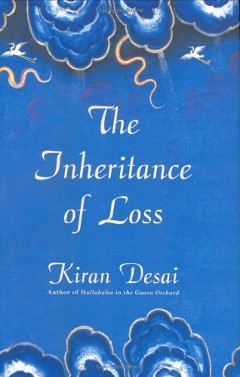Return to the ethnic orchard: Desai’s book inherits what was best lost
Published @ Daily News & Analysis

So another Indian gets the Booker Prize. What shall we feel, smug or smart? Being Indian is tough enough. Being an Indian writer in English is tougher. And being an Indian writer in English who has won the Booker is the toughest business of them all. So hail the Thane of London’s Guildhall, who shall be the Queen hereafter!
If we look at the beginnings of our efforts at writing in English, it would be amusing to note how Indians took to writing in English. Amusing because Macaulay’s idea of making English a working language for babus was turned on its head by the generation that learnt the language in the corridors of Calcutta’s Presidency College and actually started composing tracts, plays, fiction and even poetry in English.
More ironical is the fact that the idea of India had not crystallised in the mid/end 19th century and the pulls and pushes of nationality, ethnicity and identity (words, which incidentally, the Booker mandarins love) were shaping and reshaping the same. But Indian writing in English, as we see, was already born, somewhat prematurely, to confused parentage.
This genre then grew up amongst this confusion of parentage, genealogy and binarity, throughout the 20th century. And it showed in the things we wrote about. While the world’s best literature interrogated difficult questions about war and peace, the triumph and failure of humanity, fascism and communism, the enormous challenges of modernity and cosmopolitanism, Indians kept writing about small nameless places, family losses and gains, pulls of traditions, bucolic follies and the humour of a half-urban gentry. Hardly were there serious enquiries into the complex life of Indians, into our effusive and expansive democracy, the political mishmash, the tactile social realities.
Those who did got little attention. Like GV Desani’s Joycean tale All About H Hatter, a remarkable tour de force of imagination, wit and linguistic jugglery. It was not ‘Indian’ enough — there was no serviceable rope trick jumping out of the pages of this novel. Neither was it written in an apprentice’s English, qua Mulk Raj Anand, who won the West’s patronising half-approval.
That was the key. Nobody cared about Indians writing about larger issues, just like universities abroad do not like Indians teaching Shakespeare or Dante. Stick to your country and give us straight-jacketed exotica, were the commands. And so the postcolonial trap of academia and literature, self-inflicted by the East and sustained by the West, continued unabashed. No harm saying that Kiran Desai’s mother Anita was part of this bandwagon. And so is Kiran herself.
Salman Rushdie had put the brake on this stream of ‘conscience’ with one masterstroke, Midnight’s Children. His India was complex, animated and vigorous. Rushdie was joined, gradually, by many like him — Amitav Ghosh, Arundhati Roy, Kiran Nagarkar — who thought and wrote like global citizens. They tunnelled through India’s subterranean, its many realities and wrote about its diverse multitudes. Finally.
After Rushdie, cricket, Bollywood and multiculturalism changed the West. The favourite Booker vocabulary — nationality, ethnicity and identity were still saleable, but rendered in challenging ways and depicted, often, in grand narratives. The idea of India to the West was less important than the idea of India as part of the global melting pot of people, homes and cultures. Or so we thought.
Desai’s selection for the Booker seems to be a throwback to that past when the gents and ladies of the British literary establishment rewarded and deliberated on the spectacular clichés about foggy third world countries. Kiran’s book, about retired life in misty Kalimpong troubled by Gorkha insurgency, juxtaposed with immigration hardships in America carry the usual ‘buzz’ words — migrant’s plight, diasporic dilemma and cranky colonialism (now almost a caricature in fiction written by Indians staying abroad about Indians staying abroad). And the words made the right noises at the right places, comfortably subterfuging nationality, ethnicity…
When we all thought that the baggage of being Indian has finally left the emporiums of Indian writing, The Inheritance Of Loss has tragically re-inherited that doubtful distinction and has been rewarded for it.
comments for this post are closed